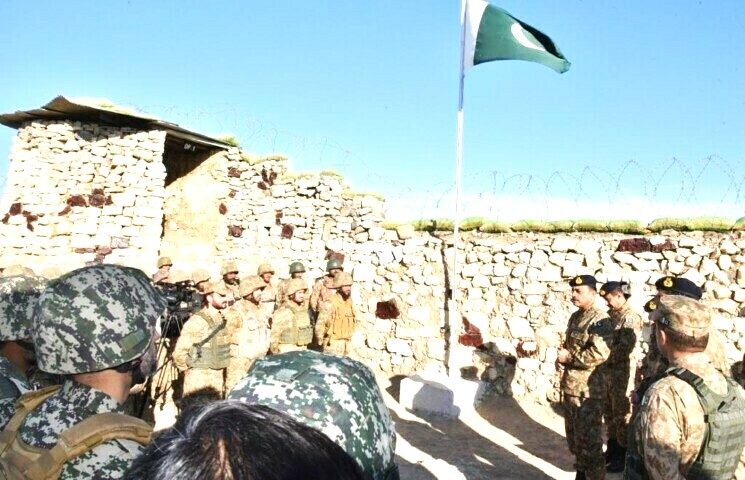Pakistan’s counter-terrorism efforts gained momentum after 2009, following comprehensive military operations that addressed immediate threats

By Asghar Ali Mubarak
ISLAMABAD: The recent wave of terrorist attacks in Pakistan has heightened concerns about the country’s security, signaling a concerted effort by terrorist groups to reverse the progress made in countering terrorism. Pakistani Army Chief General Asim Munir has reaffirmed the military’s commitment to the complete elimination of terrorism, calling the ongoing wave of violence a conspiracy aimed at weakening the nation.
While Pakistan’s military operations have proven effective in curbing the rise of terrorism, these attacks on law enforcement agencies and critical installations highlight the challenges that remain. In Pakistan’s fight against terrorism, a key distinction needs to be made between counter-terrorism and counterterrorism efforts. Counter-terrorism generally refers to proactive measures taken before an attack to prevent terrorist activities, while counterterrorism is reactive, addressing the aftermath of an incident with operations and countermeasures.
Although Pakistan has a solid counter-terrorism framework, the current wave of attacks exposes the need for a more integrated approach that goes beyond reactive military strategies and tackles the root causes of terrorism. Historically, Pakistan’s counter-terrorism efforts gained momentum after 2009, following comprehensive military operations that addressed immediate threats. However, long-term solutions to the socio-political and economic factors that fuel terrorism have not been as robust.
This gap has been particularly evident in the National Action Plan (NAP) and the establishment of the National Counter-Terrorism Authority (NECTA) after the Army Public School (APS) attack in 2014. While NECTA was designed to address the root causes of terrorism through prevention, its focus shifted over time from practical implementation to theoretical assessments, leaving law enforcement agencies largely uncoordinated and unable to address the full spectrum of terrorist threats effectively.
Furthermore, the legal framework for counter-terrorism in Pakistan has faced challenges, especially with the misuse of laws like Section 7 of the Anti-Terrorism Act 1997. This section, meant for terrorists, is often applied to non-terrorist offenders, leading to judicial backlogs and acquittals due to insufficient evidence. This misapplication diverts resources away from prosecuting actual terrorists and weakens the overall effectiveness of counter-terrorism strategies.
General Asim Munir’s statement on the complete eradication of terrorism signals the military’s unwavering commitment to addressing the terrorist threat in Pakistan. His visit to the Combined Military Hospital (CMH) in Quetta, where several victims of a recent suicide bombing were treated, underscores the gravity of the situation. The attack, claimed by the outlawed Baloch Liberation Army (BLA), targeted law enforcement officers and civilians, killing at least 27 people and injuring over 60.



